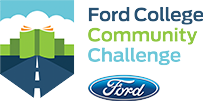CSE Academics
-
Skill Development: Co-curricular activities provide students with opportunities to develop a wide range of skills beyond the academic curriculum. They can enhance leadership, teamwork, communication, problem-solving, time management, and organizational skills. These skills are highly valued by employers and can boost career prospects.
-
Personal Growth: Participating in co-curricular activities helps students develop self-confidence, self-awareness, and a sense of identity. It allows them to explore their interests, passions, and talents, which contributes to personal growth and self-discovery.
-
Networking Opportunities: Co-curricular activities often involve interacting with peers, faculty members, and professionals outside the classroom. This networking can help students build connections, establish relationships, and expand their social and professional circles.
-
Enhanced Academic Performance: Engaging in co-curricular activities has been linked to improved academic performance. It can promote better time management, discipline, and focus, as students learn to balance their academic and extracurricular commitments effectively.
-
Well-rounded Education: Co-curricular activities offer a holistic learning experience by complementing the theoretical knowledge gained in the classroom. They provide practical application opportunities, foster creativity and critical thinking, and expose students to a diverse range of perspectives and experiences.
-
Stress Relief and Well-being: Co-curricular activities serve as a means of relaxation, stress relief, and mental well-being. Engaging in activities that students enjoy can alleviate academic pressure, enhance overall happiness, and contribute to a healthier work-life balance.
-
Personal Satisfaction and Fulfillment: Accomplishments and successes in co-curricular activities can provide a sense of personal satisfaction and fulfillment. Achieving goals, receiving recognition, and making a positive impact in extracurricular pursuits can boost self-esteem and motivation.
-
Cultural and Global Awareness: Many co-curricular activities, such as cultural clubs, community service initiatives, and study abroad programs, expose students to diverse cultures, perspectives, and global issues. This fosters an appreciation for diversity, promotes intercultural understanding, and helps develop a global mindset.
-
Leadership Opportunities: Co-curricular activities often offer leadership positions and responsibilities, allowing students to develop and showcase their leadership skills. Leading a club, organizing events, or coordinating projects can provide valuable leadership experiences and help students build a strong leadership profile.
-
Personal Interest Pursuit: Co-curricular activities offer students the chance to explore their personal interests and hobbies. Whether it's sports, arts, music, debate, entrepreneurship, or any other area of interest, these activities provide avenues for personal enjoyment, passion pursuit, and self-expression.
Ways Students Can Get Involved
-
Entrepreneurship Association
Founded in 2022, the Entrepreneurship Association (EA), is a collection of high-achieving students that are exploring entrepreneurship in several ways:
- Networking events
- Guest speakers
- Field trips
- Creation of an on-campus business, the EA Cafe, a mobile coffee cart that sells coffee on campus
EA is open to all students across campus. You can join this club by contacting EA President, Bianca Candella at candelbm@udmercy.edu
-
Student Pitch Competition
There are a few student pitch competitions that occur regularly. In any competition, faculty from the CSE will coach you and your teammates through the competition. To find out more contact Derrin Leppek at leppekdj@udmercy.edu.
MCA-C3
 MCA-C3 is a year-long student scholarship competition that brings together teams of MCA faculty and students, along with local partners, to create project proposals to envision and lead positive change in their campus environments. Ideas generating broad social and economic impact are sought. Winning teams receive generous scholarship and stipend awards and design thinking training from the Henry Ford Learning Institute, with the opportunity to earn a certificate in design thinking. Visit MCA
MCA-C3 is a year-long student scholarship competition that brings together teams of MCA faculty and students, along with local partners, to create project proposals to envision and lead positive change in their campus environments. Ideas generating broad social and economic impact are sought. Winning teams receive generous scholarship and stipend awards and design thinking training from the Henry Ford Learning Institute, with the opportunity to earn a certificate in design thinking. Visit MCAFord College Community Challenge
 Ford College Community Challenge is designed to empower student teams to develop creative community-building projects addressing local needs, around the theme Making Lives Better.
Ford College Community Challenge is designed to empower student teams to develop creative community-building projects addressing local needs, around the theme Making Lives Better.Winning student proposals must consider, in a unique way, an identified community need, tied to one or more of three broad categories:
Participants are encouraged to think broadly and explore a variety of potential topics including (but not limited to) infrastructure and workforce needs, community and economic development, hunger and other basic needs, education and design issues, new approaches to student volunteerism etc. Visit FordC3
-
Micro-Credentials
Micro-credentials are a way to recognize students for demonstrated mastery in a specific area or areas. These micro-credentials are a unique way for students to stand out amongst their peers, and amongst other job applicants once they enter the workforce.
The micro-credentialing program is in the final stages of development and will be released soon.
